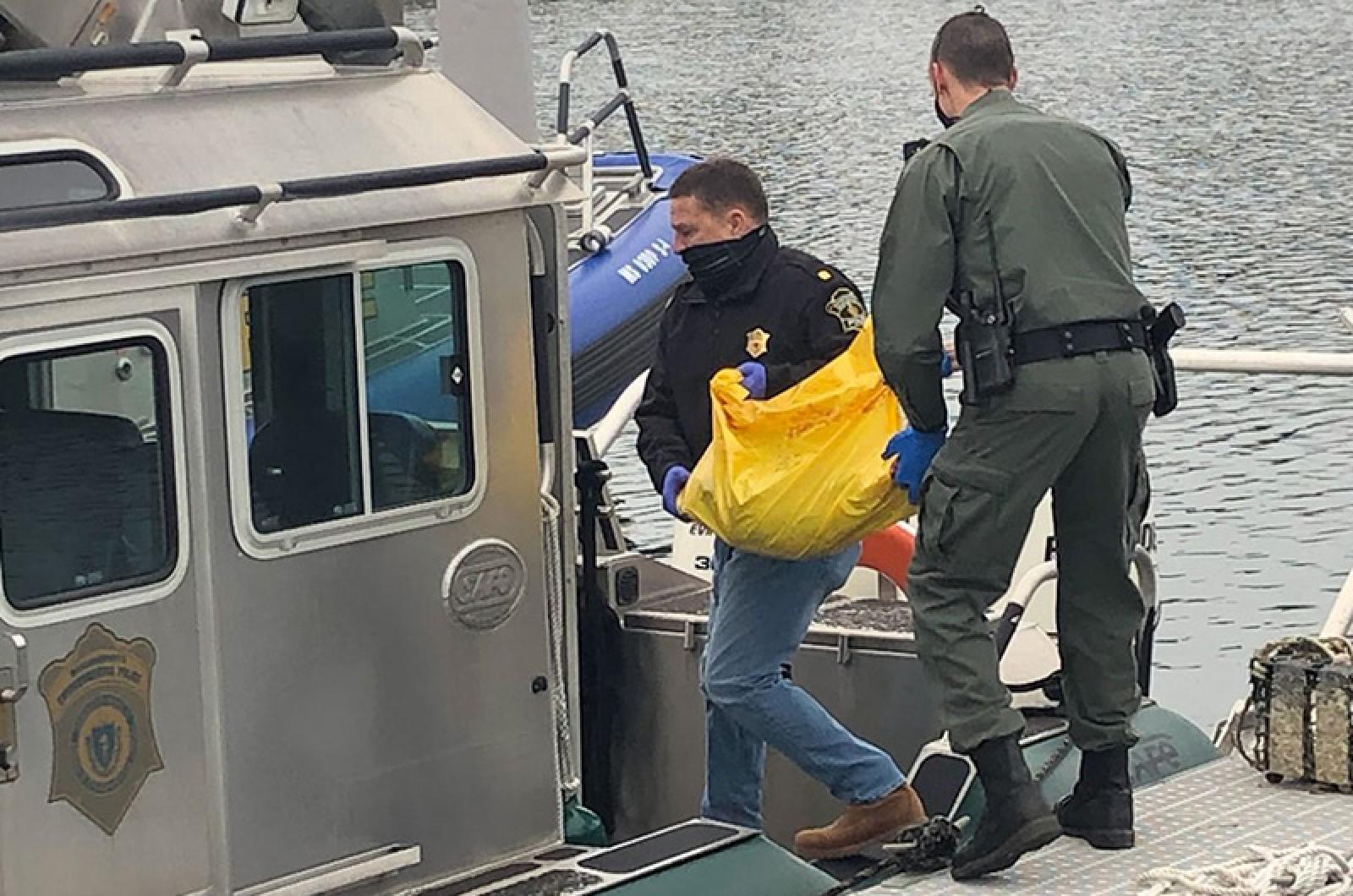It started as a brief conversation between state environmental police Lt. Col. Patrick Moran and Bret Stearns, the natural resource officer for the Wampanoag Tribe of Gay Head (Aquinnah).
If, perchance, a moose were to die in the state, Lieut. Col. Moran told Mr. Stearns, the meat could be delivered to the tribe.
“I hadn’t thought to ask that question,” Mr. Stearns told the Gazette. “He reached out, which I thought was very kind.”
Moose hunting is prohibited in Massachusetts, where the population nearly disappeared from unregulated hunting and began to return in the 1980s. Car collisions with moose are rare, and salvaging moose meat from a collision is even rarer. But stocks in tribal food supplies had gotten low since the pandemic began, and the tribe was always looking for sustenance foods to supplement other items that came out of food pantries. Mr. Stearns — pardon the pun — was game.
A few months went by with the moose proving elusive, sticking to the state’s backwoods rather than back roads. But then, over the weekend, it happened: a 700-pound moose was killed in a motor vehicle collision in the western part of the state. After examination, it appeared that a large portion of the meat would be salvageable. Officers sprung into action, hauling the animal into a cruiser, quartering it, and making sure that it got to Sgt. Scott Opie, the environmental police officer assigned to the Island.
When Sergeant Opie left for the Vineyard Monday morning, he had yellow bags of moose meat with him, ready to be processed by Brian Athearn and the MV Hunt Club and distributed to the Wampanoag Tribe of Gay Head (Aquinnah). The moose is currently hanging in Mr. Athearn’s deer cooler, where it will remain for at least a week until it is tenderized and ready for distribution.
“Colonel Moran and I communicate relatively frequently about tribal sustenance. This exact event was a possibility, and we had already discussed if there was a moose strike somewhere in the state, we could acquire the meat for the tribe for sustenance purposes,” Mr. Stearns told the Gazette. “And they were incredibly generous when it did.”
Since the pandemic began, the tribe has been providing supplemental food to its members largely through a weekly distribution program with the Safe Harbor Food Pantry. The program traditionally serviced about 25 families, but demand has skyrocketed since March, with weekly distributions servicing about 70 tribal families across the Island, program director Jennifer Randolph said.
Ms. Randolph emptied the pantry in March and now has to replenish it week to week through the aid and generosity of Island Grown Initiative and other food equity partners on the Island.
The tribe’s natural resource department will supplement the distributions with donated sustenance foods, like venison from the hunting season, or bonito and bluefish during the derby.
“A lot of our people like to stick to traditional foods,” Ms. Randolph said. “It’s been very popular.”
But Mr. Stearns said those stocks had run low recently.
“As of two months ago, we had given away everything we have,” Mr. Stearns said.
Neither Mr. Stearns not Ms. Randolph knew how much meat would ultimately come from the moose, but both said that the delivery was much needed and appreciated by tribal members. According to Mr. Stearns, moose has a distinct taste and feel from venison, more like steak than deer meat.
“It’s very good,” he said.
Ms. Randolph added that distribution would take place in the coming weeks, and that a long digital line was already forming.
“I have tribal members already calling to put their names on the list,” Ms. Randolph said. “A lot of people are excited too.”
Mr. Stearns took care to note that when a 700-pound moose dies after being struck by a motor vehicle in western Massachusetts, it doesn’t normally end up 200 miles south on a small Island in the middle of the Atlantic. The moose, he said, was a symbol of the robust lines of communication that had formed between the tribe and environmental police, and a shared interest in sustenance.
“When something happens in western Mass, they are thinking about us here,” Mr. Stearns said. “It’s not just about providing that meat. It’s about being able to think about how we can work together on a much bigger basis.”







Comments
Comment policy »